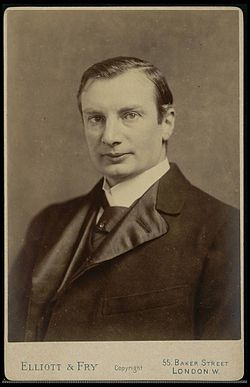W M Haffkine
| Waldemar Mordechai Haffkine | |
|---|---|

Waldemar Haffkine
|
|
| Born | 15 March 1860 Berdyansk, Ukraine |
| Died |
26 October 1930 (aged 70) Lausanne, Switzerland |
| Fields | bacteriology, protozoology |
| Institutions | Imperial Novorossiya University, University of Geneva, Pasteur Institute |
| Alma mater | Imperial Novorossiya University |
| Known for | vaccines against cholera and bubonic plague |
| Author abbrev. (botany) | Khawkine |
Sir Waldemar Mordechai Wolff Haffkine, CIE (Russian: Мордехай-Вольф Хавкин; in some publications in French: Mardochée-Woldemar Khawkine) (15 March 1860 in Berdyansk,Ukraine – 26 October 1930 in Lausanne, Switzerland) was a Russian Empire Jewish bacteriologist, whose career was blighted in Russia because "he refused to convert to Russian Orthodoxy." He emigrated and worked at the Pasteur Institute in Paris, where he developed an anti-cholera vaccine that he tried out successfully in India. He is recognized as the first microbiologist who developed and used vaccines against cholera and bubonic plague. He tested the vaccines on himself. Lord Joseph Lister named him "a saviour of humanity".
He was knighted in Queen Victoria's Diamond Jubilee year Honours in 1897. The Jewish Chronicle of that time noted "a Ukraine Jew, trained in the schools of European science, saves the lives of helpless Hindoos and Mohammedans and is decorated by the descendant of William the Conqueror and Alfred the Great."
Born Vladimir Aaronovich Chavkin (Russian: Владимир (Маркус-Вольф) Аaронович Хавкин), the fourth of five children of Aaron and Rosalie (daughter of David-Aïsic Landsberg) in a family of a Jewish schoolmaster in Berdyansk, Russian Empire (now Ukraine), he received his education in Odessa, Berdyansk and St. Petersburg.
...
Wikipedia
